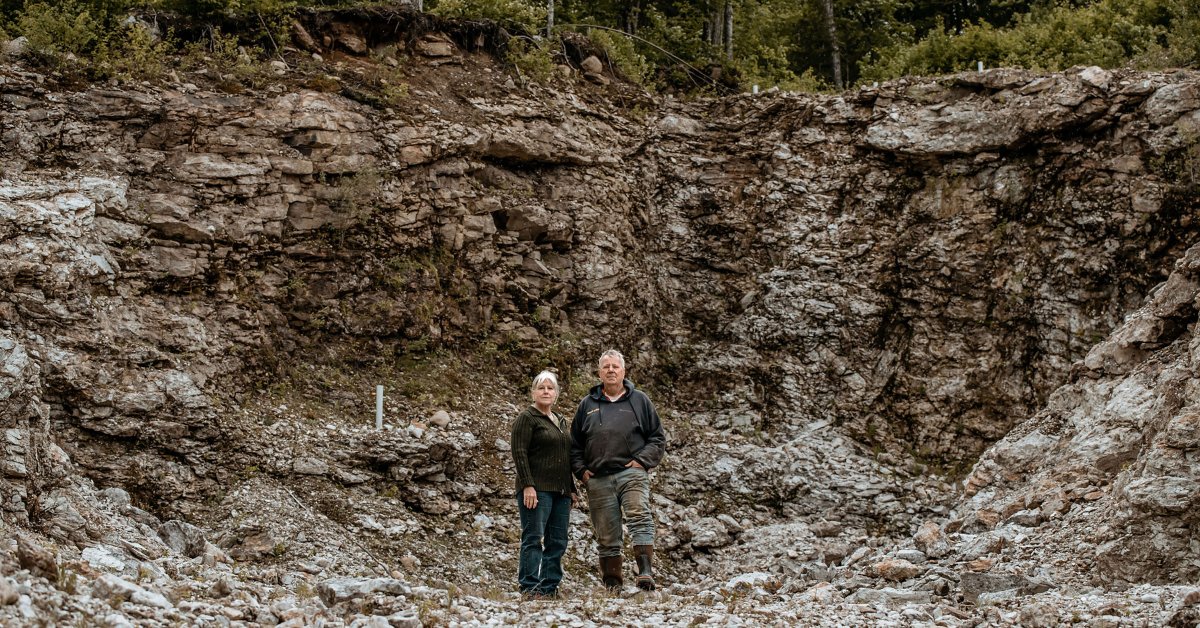Gem Hunters Found the Lithium America Needs. Maine Won’t Let Them Dig It Up::Gem hunters in Maine found one of the richest lithium deposits in the U.S. State laws are preventing them from being able to mine it.
Makes sense, lithium mining is incredibly destructive to the environment.
Yeah.
Besides finding lithium is one thing, confirming it’s a deposit worth mining is another.
Looks like there’s three ways to mine Lithium:
- Hard Rock mining (as mentioned in the article)
- Natural Brine sources
- De-salinated water brine
Maine has been burned in the past by previous mining operations closing up and leaving the state to clean up the remaining mess (also in the OP article). Definitely a tough situation all around.
Regarding how much Lithium can be recovered from desalination waste:
The US currently has one operating desalination plant, Carlsbad, that processes 50 million gallons of seawater per day. If it recovered 100% of the lithium in that water, it would produce… about 16 tonnes of lithium per year.
VS the amount needed/used per year:
https://www.statista.com/statistics/606481/estimated-lithium-consumption-in-the-united-states/
In 2022 the United States consumed an estimated 3000 metric tons of lithium.
https://www.neefusa.org/story/water/home-water-use-united-states
Each day in the United States, about 27.4 billion gallons of water are withdrawn and delivered from surface water and groundwater sources for residential use
So if we supplemented 10% of our needs from Desalinated water (2.74 Billion gallons a day) and recovered the same max amount of Lithium as the example a day (50 million gallons a day for 16T of Lithium a year) then we get:
(2.74B/50M)16T= 54.816T= 877T of Lithium a year
So they US just needs to open 187 more desalination plants… and find a place to put all that deadly brine.
An instant ramen factory would at least take care of the sodium!
That said, looks like the current sea water desalination worldwide is pretty huge:
https://www.wired.com/story/desalination-is-booming-but-what-about-all-that-toxic-brine/
16,000 operating desal facilities worldwide have been producing. Until now. Researchers report today that global desal brine production is 50 percent higher than previous estimates, totaling 141.5 million cubic meters a day, compared to 95 million cubic meters of actual freshwater output from the facilities.
236.5 million cubic meters of sea water processed a day, 264 gallons in a cubic meter = 62.44 Billion gallons of water per day.
If the Lithium content is the same as it is in the US example, then that is a potential 20,000 tons of Lithium a year (again assuming the same Li concentration and 100% extraction.
Sadly still short of the current global demand for lithium:
https://www.pbs.org/newshour/economy/u-s-seeks-new-lithium-sources-as-demand-for-clean-energy-grows
Worldwide demand for lithium was about 350,000 tons (317,517 metric tons) in 2020, but industry estimates project demand will be up to six times greater by 2030.
It is destructive to the environment.
The real question is if it is worth the damage to the environment for the lithium? That lithium will make it possible to make more batteries for less money, which then less fossil fuels and more renewables can be used over the entire life of the battery. Further if we start recycling lithium batteries completely, then it is the improvement across the lives of all the batteries made from that lithium minus any damage to the environment caused be recycle each generation of batteries.
For Maine they probably will not see enough of an improvements directly. For the US we might see enough improvements elsewhere to make it worthwhile. For the world we probably would be a net gain of environmental improvement.
The longer the timeframe the lithium can be used to lessen climate change impacts (batteries for cars and renewables) the more likely even Maine would see a net positive versus the damage of mining the lithium to begin with. But that is very hard to quantify and even harder to predict the future (new battery tech might displace current lithium batteries).
We need to invest in new battery technologies, not lithium mining.
Until there is an alternative lithium would have to be mined, you can’t stop it till it can be replaced
No doubt. But we do it when the benefit > cost(including environmental). If we never mined and destroyed land we would not have most modern things that we enjoy everyday.
So what you’re saying is, cut out modern luxurious shit and the world would be in a better place? Deal
Good? We just had the 14 hottest recorded days on the planet all in a row (or nearly enough)
Fuck lithium I want my kids to have a planet to live on.




